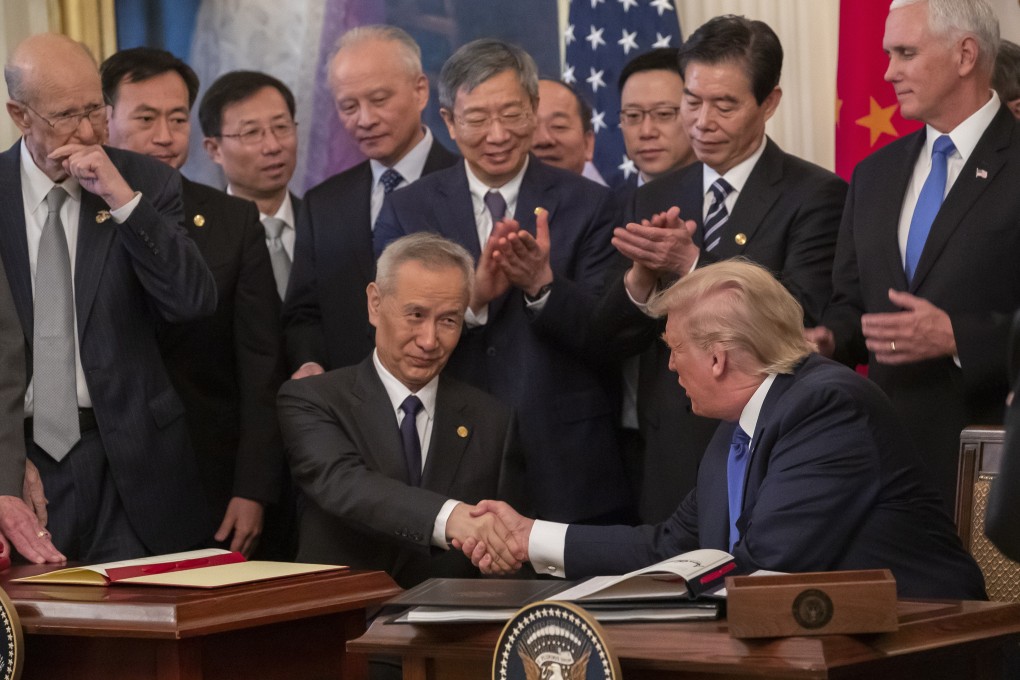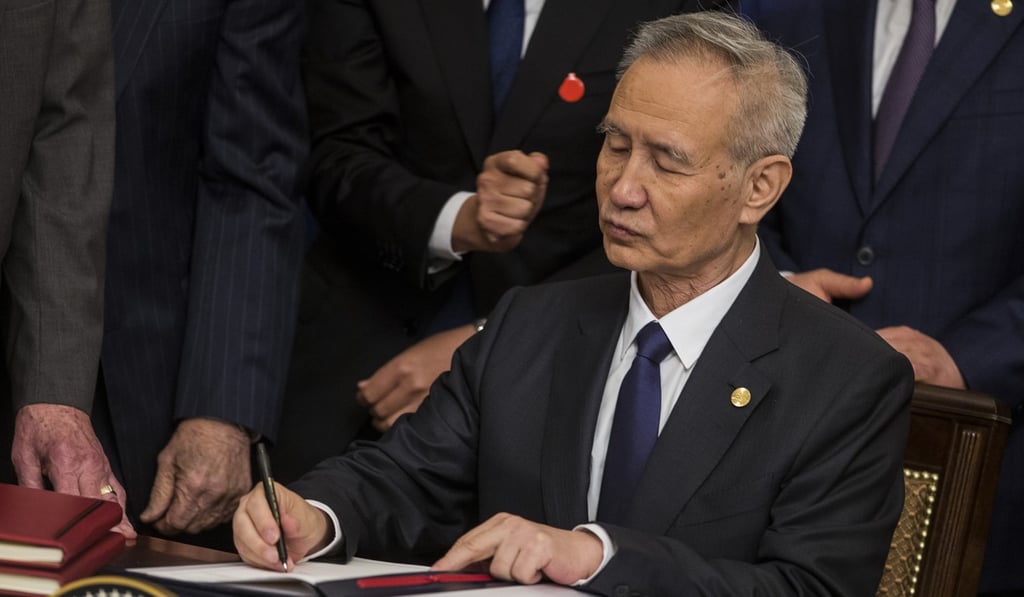Chinese protesters angle for Liu He’s attention as his motorcade whizzes past
- With bullhorns, posters, brochures and chants, numerous demonstrators aired their grievances outside the White House
- One protester said yelling at officials from afar wasn’t as futile as it seemed: ‘Maybe when the Chinese government loses face, they’ll do something’

As Vice-Premier Liu He’s five-vehicle convoy, sirens wailing, pulled into view along 17th Street in Washington before turning into the west gate of the White House, four Chinese protesters push the button on their megaphone and let it rip.
“The Chinese Communist Party is a liar and a cheater,” they yelled repeatedly in Mandarin through their battery-powered red-and-white bullhorn while protester Hang Haodong held up a sign in English and Chinese that read: “Return my Home, Justice for my Mother”.
As the black vehicle carrying Liu faded into the White House distance, weaving its way through a maze of trailers and service vehicles, the megaphone added a final, plaintive “Liu He, Liu He, Liu He”.
Amid the fanfare, win-win language and exaggerated claims during Wednesday’s signing ceremony in the East Room for a US-China phase one trade deal, a small but determined knot of protesters a few dozen feet away – and a world apart – pursued their own 15 minutes in the spotlight.

With Liu out of sight and traffic allowed to resume, four Secret Service agents shifted from hypervigilant to secondary threat mode, crossing the street toward the protesters.